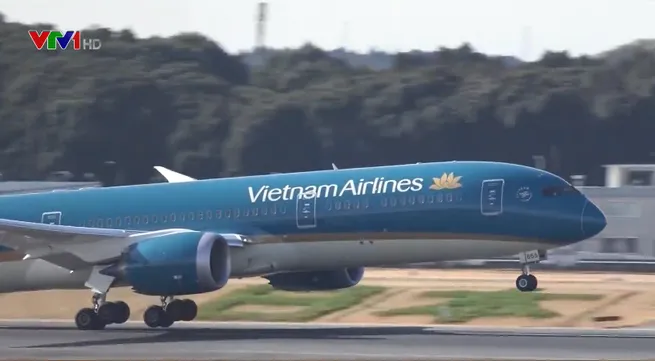Aviation and transport sector seeks help with downturn caused by COVID-19

The aviation and transport sector has directly suffered from the detrimental effects caused by the outbreak of the COVID-19 epidemic, following the production and business activities of numerous enterprises being negatively affected.
According to preliminary statistics released by airlines, the aviation sector has been experiencing a slowdown since the end of January 2020 as a result of the closure of several air routes, causing over VND30,000 billion in initial damages in the process.
At present, local air firms are either stopping or reducing the frequency of flights on a number of routes. Specifically, all flights to China and the Republic of Korea have been cut, whilst there has been a 25% reduction on flights to Chinese Taiwan, down by 172 flights per week from a total of 231 flights previously. Moreover, Vietnamese airlines have moved to cut 34% of all flights, a slump of 99 flights per week in comparison to an average of 151 flights per week in late 2019.
Based on updated statistics, the Civil Aviation Administration of Vietnam said if the disease can be brought under control before April 2020, then the total market is anticipated to reach 67 million passengers. This would represent an annual fall of 15.4% compared to 2019, including 12.7 million international arrivals, down 28.3%, and 35.3 million domestic tourists, a drop of 5.5%.
In the worst case scenario and the disease cannot be controlled before June 2020, the total market would reach only 61.2 million passengers, representing a fall of 22.6% in comparison with 2019, including international visitors, down 41.2%, and 35.3 million domestic tourists, a drop of 5.5%.
With regards to road transportation, the beginning of the COVID-19 outbreak marked a slowdown in terms of the transportation of passengers and goods across provinces and cities nationwide, with the number of passengers, volume of transported goods, and revenue enduring a sharp fall of 40% in comparison to the same period from last year before the outbreak of the epidemic.
Moreover, the COVID-19 has also had a wide-ranging impact on the railway sector which has been forced to cancel 152 passenger trains, leading to losses of approximately VND90 billion in revenue. If the situation continues to persist, the railway sector will be at great risk of having freight output and revenue severely reduced.
Most notably, the number of journeys being made by taxi has fallen by up to 60%, whilst transport that serves tourism has been reduced by between 70% and 80% following the closure of various festivals and places of interest, in addition to cargo transportation enduring a slump of 30% over the same period.
In order to overcome these difficulties, transport units have called for assistance from relevant agencies in order to help them cope with the epidemic by searching for new partners and markets, thereby creating the motivation for transport activities to receive a boost in the near future.
With these challenges, the Ministry of Transport has requested that the Ministry of Planning and Investment reports to the Prime Minister in order to allow the Ministry of Transport to issue a policy aimed at supporting the price for aviation services for Vietnamese airlines.
Simultaneously, the Ministry of Transport had also proposed that the government move to direct the State Capital Management Committee to reduce operating rates for epidemic-hit trains in order to maintain their smooth operation.
Tags:





